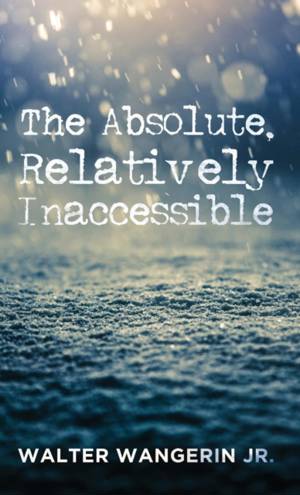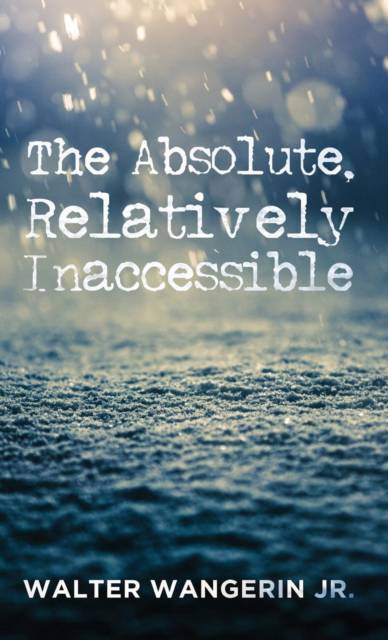
Je cadeautjes zeker op tijd in huis hebben voor de feestdagen? Kom langs in onze winkels en vind het perfecte geschenk!
- Afhalen na 1 uur in een winkel met voorraad
- Gratis thuislevering in België vanaf € 30
- Ruim aanbod met 7 miljoen producten
Je cadeautjes zeker op tijd in huis hebben voor de feestdagen? Kom langs in onze winkels en vind het perfecte geschenk!
- Afhalen na 1 uur in een winkel met voorraad
- Gratis thuislevering in België vanaf € 30
- Ruim aanbod met 7 miljoen producten
Zoeken
€ 51,45
+ 102 punten
Uitvoering
Omschrijving
The Absolute, Relatively Inaccessible is a volume of poems divided into three parts. The three parts are bound together by a brace of persistent and developing themes, as well as by the repetition (and the development) of language, metaphor, and imagery. Part 1 presents various characters (mostly African American) confronting death. The poems in part 2 are spoken by an unnamed narrator about his cancer. My cancer, actually, and my experiences. Parts 2 and 3 both descend into silence. Part 3 is a radical reworking of the ancient Mesopotamian epic loosely known as The Songs of Heaven and Hell. The poems are not a translation, though each derives from a separate song, and each uses the characters, the events, the worldview, and the stark imagery of Babylon in the third century BCE. In many respects, these poems have the prosody of the biblical psalms.
Specificaties
Betrokkenen
- Auteur(s):
- Uitgeverij:
Inhoud
- Aantal bladzijden:
- 94
- Taal:
- Engels
Eigenschappen
- Productcode (EAN):
- 9781498240628
- Verschijningsdatum:
- 31/05/2017
- Uitvoering:
- Hardcover
- Formaat:
- Genaaid
- Afmetingen:
- 140 mm x 216 mm
- Gewicht:
- 272 g

Alleen bij Standaard Boekhandel
+ 102 punten op je klantenkaart van Standaard Boekhandel
Beoordelingen
We publiceren alleen reviews die voldoen aan de voorwaarden voor reviews. Bekijk onze voorwaarden voor reviews.









